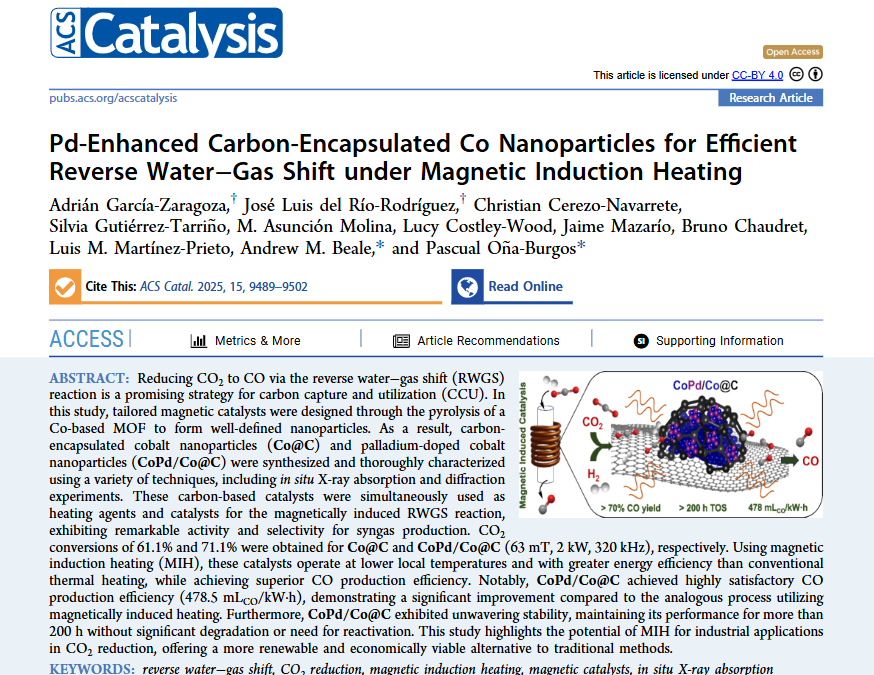New scientific article – developed by LAURELIN partners – Pd-Enhanced Carbon-Encapsulated Co Nanoparticles for Efficient Reverse Water-Gas Shift under Magnetic Induction Heating
The LAURELIN project partners Consejo Superior de Investigaciones Cientificas (CSIC), Universidad de Almeria (UAL) and the University College London (UCL) have recently worked on their scientific paper entitled: Pd-Enhanced Carbon-Encapsulated Co Nanoparticles for Efficient Reverse Water-Gas Shift under Magnetic Induction Heating
The article recently has been published in the ACS Catalysis journal on 20 May 2025.
The article can be accessed through the following link: Pd-Enhanced Carbon-Encapsulated Co Nanoparticles for Efficient Reverse Water–Gas Shift under Magnetic Induction Heating | ACS Catalysis
Study abstract
Reducing CO2 to CO via the reverse water–gas shift (RWGS) reaction is a promising strategy for carbon capture and utilization (CCU). In this study, tailored magnetic catalysts were designed through the pyrolysis of a Co-based MOF to form well-defined nanoparticles. As a result, carbon-encapsulated cobalt nanoparticles (Co@C) and palladium-doped cobalt nanoparticles (CoPd/Co@C) were synthesized and thoroughly characterized using a variety of techniques, including in situ X-ray absorption and diffraction experiments. These carbon-based catalysts were simultaneously used as heating agents and catalysts for the magnetically induced RWGS reaction, exhibiting remarkable activity and selectivity for syngas production. CO2 conversions of 61.1% and 71.1% were obtained for Co@C and CoPd/Co@C (63 mT, 2 kW, 320 kHz), respectively. Using magnetic induction heating (MIH), these catalysts operate at lower local temperatures and with greater energy efficiency than conventional thermal heating, while achieving superior CO production efficiency. Notably, CoPd/Co@C achieved highly satisfactory CO production efficiency (478.5 mLCO/kW·h), demonstrating a significant improvement compared to the analogous process utilizing magnetically induced heating. Furthermore, CoPd/Co@C exhibited unwavering stability, maintaining its performance for more than 200 h without significant degradation or need for reactivation. This study highlights the potential of MIH for industrial applications in CO2 reduction, offering a more renewable and economically viable alternative to traditional methods.

